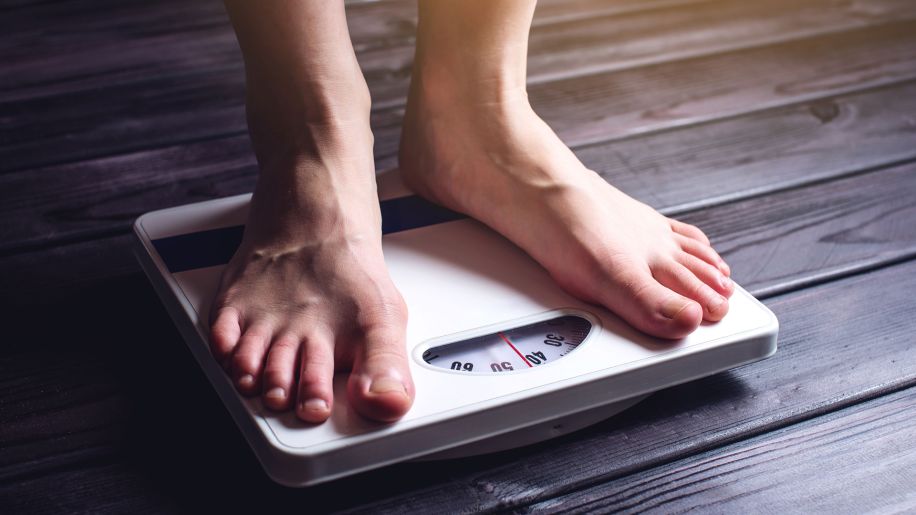Drinking alcohol, being overweight and 3 other psoriasis risk factors
How bad habits, major life events and minor injuries can trigger psoriasis.

Psoriasis is an autoimmune disease that manifests as inflammation and a variety of symptoms that affect the skin. With the most common form of psoriasis, called plaque psoriasis, a misdirected immune response speeds up the growth of skin cells, resulting in raised patches of skin that look like dry, red patches of skin covered in silvery scales. Called plaques, these patches can be itchy and painful.
People can develop psoriasis at any age, but most often the condition develops between the ages 15 and 35. While research has yet to identify a specific cause that triggers the onset of psoriasis, there are several risk factors that are known to contribute to the condition.
One of the most significant of these risk factors is genetics. Research has identified numerous genetic variants and mutations associated with psoriasis, and it is known that having a family member with psoriasis increases your risk of developing psoriasis, too.
However, genetics aren’t the only risk factor. The following slides show a few additional risk factors that have been associated with the development of psoriasis.

Smoking
Add psoriasis to the list of diseases associated with smoking cigarettes. Several studies have shown that smokers and ex-smokers are at an increased risk of developing psoriasis, and that the risk is higher in women than in men.
Research has also shown a relationship between the amount a person smokes and the severity of psoriasis: those who smoke more than 20 cigarettes a day are more likely to have severe psoriasis symptoms than those who smoke 10 or fewer cigarettes a day.
While more research is needed to fully understand the relationship between smoking and its impact on psoriasis, the advice to smokers remains the same: quit. Smoking is a significant risk factor for heart disease, cancer, COPD, type 2 diabetes, osteoporosis and many other serious illnesses.

Alcohol
Cigarette smoking isn’t the only bad habit that is a risk factor for psoriasis. There is also evidence that alcohol—especially consumed in excess—can be a risk factor. As with many aspects of psoriasis, this exact relationship is not fully understood just yet. One theory is that alcohol use disrupts normal immune system functioning, triggering psoriasis. Men seem to be more at risk than women.
If you have psoriasis, avoiding alcohol is a good idea. In addition to the possibility that it might exacerbate symptoms and trigger flare-ups, alcohol can have dangerous side effects if you are taking certain psoriasis medications, especially for women who are of child-bearing age. People with psoriasis also have 60 percent greater risk of dying from an alcohol-related cause, such as alcoholic liver disease.

Body weight
Obesity is another risk factor for psoriasis. Obesity is defined as having a body mass index of 30 or higher. Called BMI for short, body mass index is a simple weight-to-height ratio used to estimate body fat in adults.
Inflammation is believed to be the reason obesity is associated with psoriasis risk—though researchers are still unsure whether obesity increases a person’s risk of having psoriasis, or psoriasis increases the risk of obesity. Being obese causes numerous hormonal and metabolic disturbances in the body, some of which cause inflammation. In those with a genetic predisposition to psoriasis, this inflammation may act as a catalyst for symptoms. Psoriasis patients who are obese are also at an increased risk of developing psoriatic arthritis.
If you are overweight or obese, speak with your healthcare provider about safe methods for weight loss. Obesity is also a major risk factor for serious health conditions like type 2 diabetes, cardiovascular disease and many others.

Injuries to the skin
Here’s a phrase to file away for psoriasis trivia: the Koebner phenomenon.
The Koebner phenomenon was first described by German dermatologist Heinrich Koebner (pronounced KEB-ner) in 1876. It occurs when psoriasis symptoms (or any type of skin lesion, as this can affect people with a variety of dermatological disorders) appear on an area of the skin that has been injured. For example, you might burn your forearm while taking a dish out of the oven. As the burn heals, a plaque forms around the injured skin.
Cuts, scrapes, scratches, abrasions, bug bites, burns (including sunburn) and rashes caused by poison ivy or poison oak are all among the injuries that can trigger a Koebner response. So are the skin traumas caused by body modifications like tattoos and piercings. Take precaution to avoid any type of injury to the skin, especially if you are currently experiencing a flare.

Stressful life events
Physical trauma isn’t the only kind of trauma that can trigger psoriasis—emotional and mental stress may also act as triggers.
One study reported that roughly one in four patients who experienced an onset of psoriasis or an exacerbation of existing psoriasis has experienced a major stressful life event. These included financial problems, death of a loved one, unemployment and family members becoming ill. Starting a new job and getting married or engaged—which can be seen as positive, though certainly stressful life events—also made the list.
Much has been written about the relationship between stress and psoriasis symptoms, and The National Psoriasis Foundation and many health experts recommend incorporating strategies to reduce stress into your life, such as meditation, physical exercise and seeking counseling or therapy if needed.
Featured Content


video

slideshow


video


video
